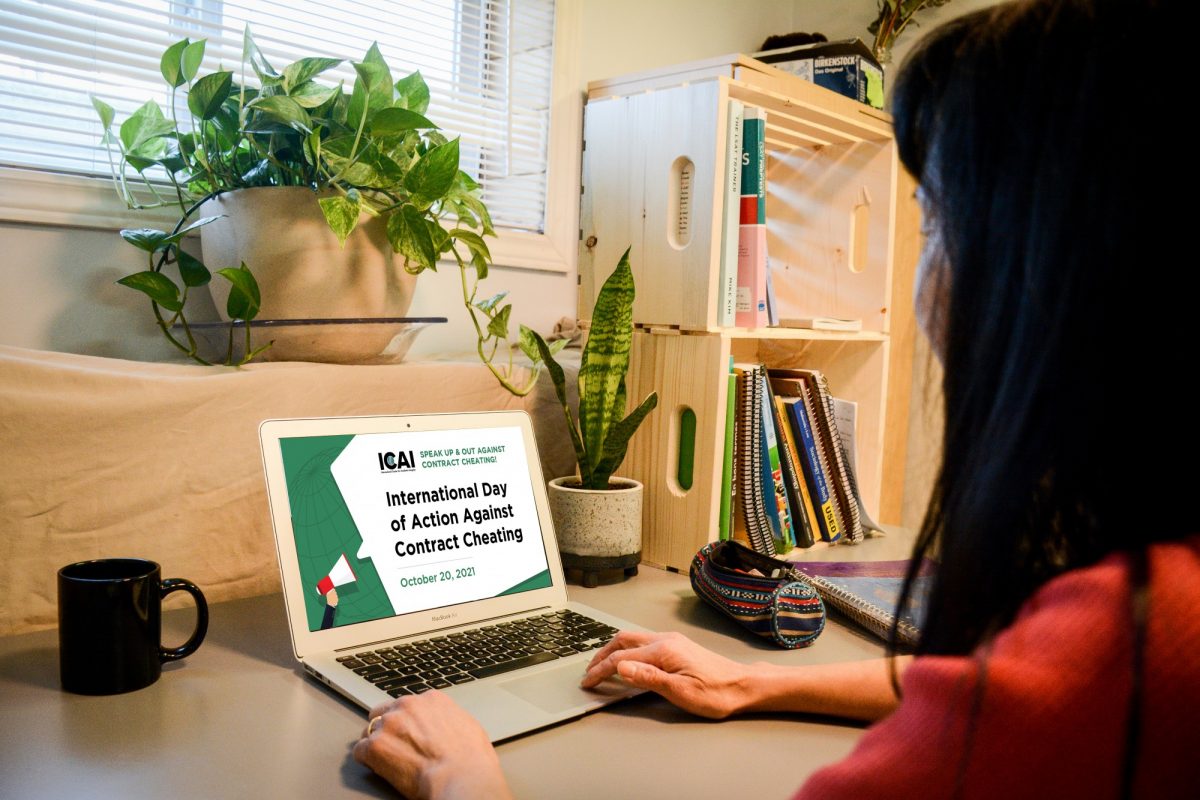
Contract cheating can start at an early age
Over 20 years ago, I arrived at my fifth-grade classroom after a frustrating weekend spent crouched over a shoebox with a hot glue gun. My classmates and I had been tasked with creating a diorama.
At 9 p.m. the night before, I had collapsed on the kitchen table in a heap of fatigue, moaning about how it was impossible for me to do this project by myself. My mother refused to help me, on the grounds that the teacher was evaluating my work, not hers.
When I showed up to class on Monday morning, my classmates proudly held up meticulously crafted dioramas. “How did you do that?” I asked one friend, assuming I must possess lower than average artistic ability.
“My mom always does my class projects,” she shrugged. This was my first encounter with contract cheating – when academic work is outsourced to another.
I remember the shame of presenting my poor-quality project and wishing that I had someone who would do my work for me. Although my diorama skills haven’t improved since then, the lesson has stuck with me: You are responsible for your own learning, even when it’s difficult and painful.
Why is Learning so Tough?
Learning can be tough, but it can be more difficult for some learners to stand in front of peers to show what their learning looks like. Sharing one’s learning can make some feel vulnerable because learning is challenging, messy, and imperfect.
When I read the blog post by Dr. Zeenath Reza Khan (Assistant Professor, Engineering and Information Sciences, University of Wollongong in Dubai), I reflected upon my experiences in grade school and my desire to support my two school-aged daughters, specifically shielding them from criticism.
During the developmental years, reactions from peers and teachers can be difficult to anticipate, and unpleasant reactions can lead to embarrassment – the kind of embarrassment that precedes refusal to attend school the next day. Watching children struggle can be difficult for many parents, and I can see how parents (pulled by their heartstrings) want to keep their children from experiencing hurt feelings, especially at school.
When my daughters bring home their challenging school projects, my instinct used to be to “take over” to help them be “successful” and avoid disapproving comments. But if I take over, they miss opportunities to hone their creative, construction, and problem-solving skills.
Contract Cheating at University
Just as the skills, attitudes, and beliefs that we learn as children shape us for life’s next stages, so too does the learning and work we do as students and staff at the university.
At the university, contract cheating is taken seriously whether you are a student submitting a paper written by someone else, or a researcher taking credit for another researcher’s work. Contract cheating has serious consequences for your reputation and for your career.
People can fall prey to contract cheating for many reasons, including:
- pressures from family, instructors, advisors, or employers to produce high-quality and/or high-quantities of work
- a high drive to be perfect and succeed at any cost
- poor time management
- lack of confidence in writing or research skills
Contract cheating suppliers offer essay writing and grading services to students and staff (including instructors and researchers). They are aware of these vulnerabilities and will often promote their services to individuals when they know they are under pressure.
Being aware of the factors that can lead to making poor decisions under pressure is an important first step to protect yourself. Build the skills and knowledge now to set yourself up for success in the future.
October 20, 2021 is the International Day of Action Against Contract Cheating.
Students: Visit our Student Success Month calendar of events and follow UM Student on Instagram.
Staff: Check out the Manitoba Academic Integrity Network speaker series including a special guest lecture on detecting contract cheating on October 20, 2021.






